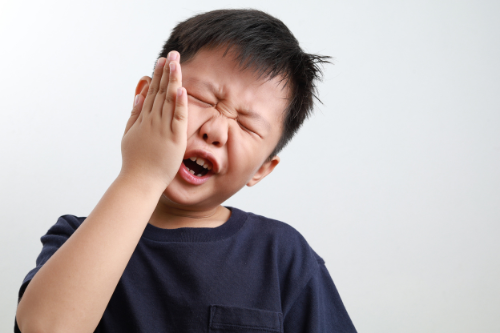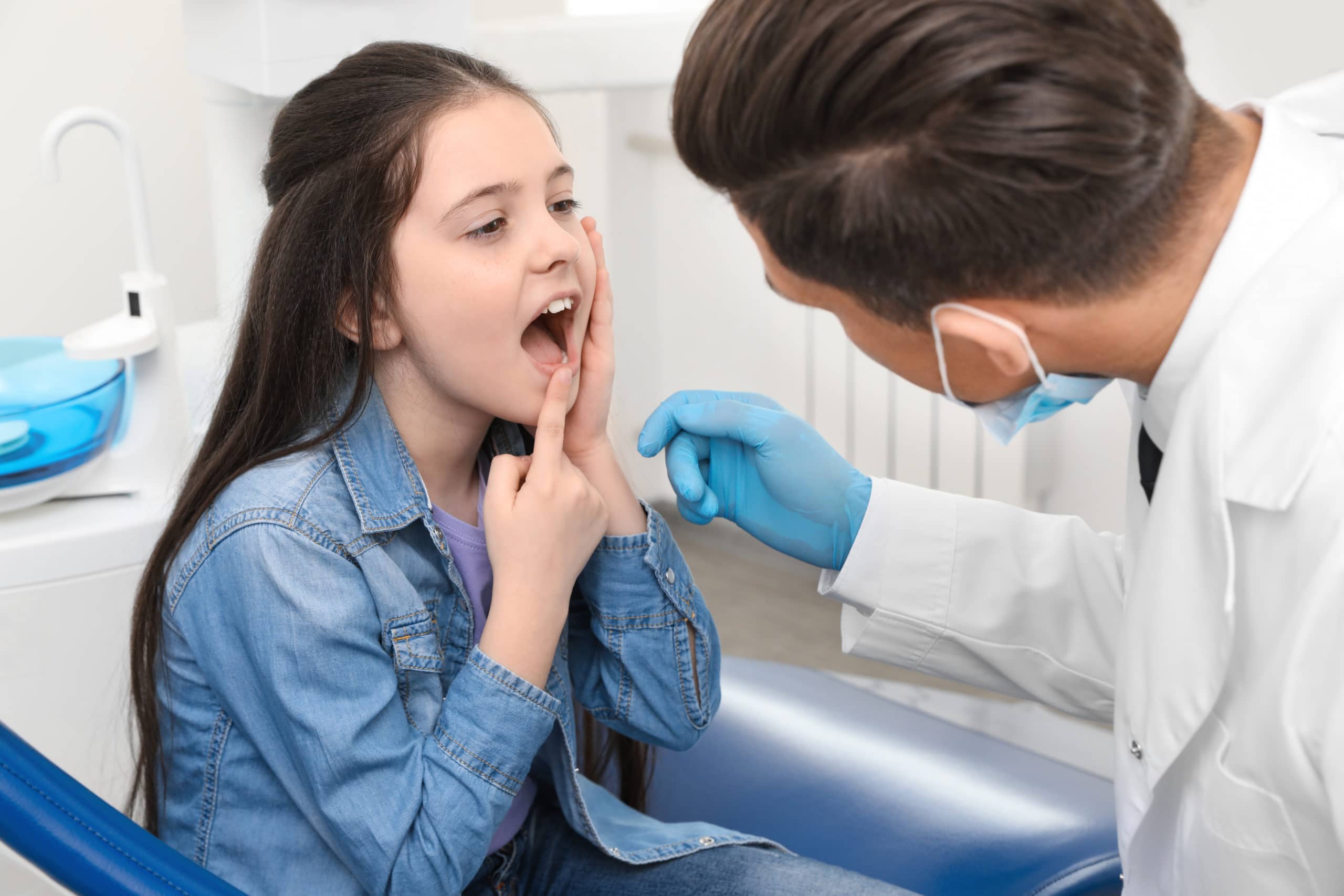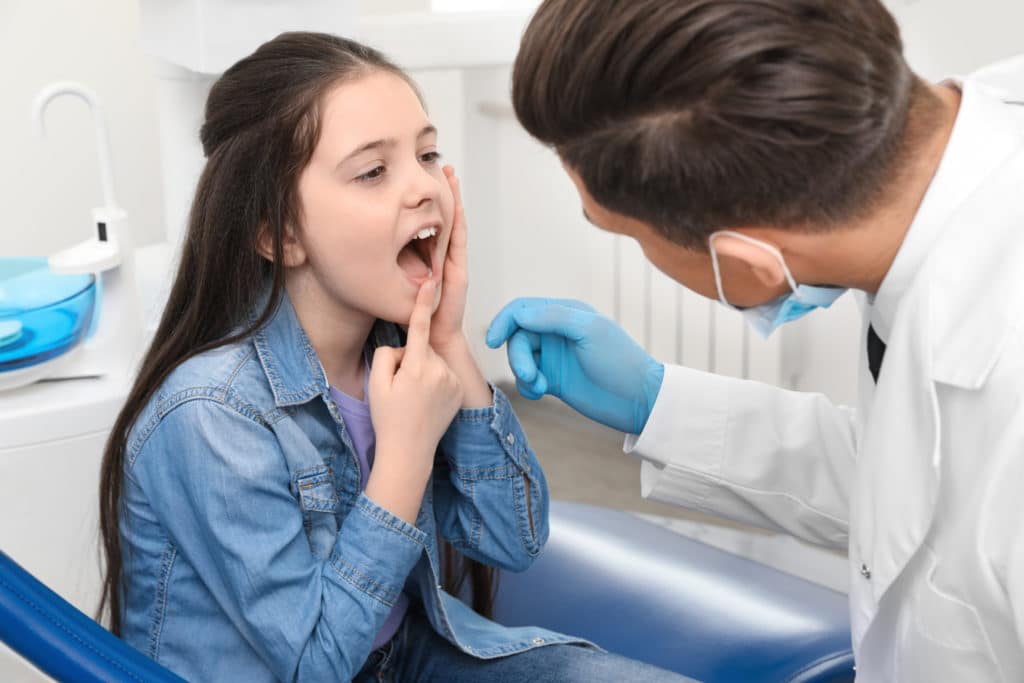Emergency Pediatric Dental Care – What You Need to Know


Getting your children to feel comfortable visiting the dentist can be challenging. It is common for many children to fear the dentist. It is understandable, many of us have been through it ourselves. With the right pediatric dental practice, your children can feel as comfortable as possible no matter if they need regular dental assistance or emergency pediatric dental care.
Emergency pediatric dental care might be needed when your child experiences unexpected pain or discomfort. It is important to never leave an issue unattended so that you can ensure to maintain the best oral health for your children.
If you lack understanding of what’s involved with emergency pediatric dental care, here is everything you need to know.
How To Tell If You Have A Dental Emergency
Some people might let their child’s dental pain slide. They might think that they are kicking up a fuss for no reason. However, dental issues should always be taken seriously. It could be that the dental issue requires emergency help.
To know if the issue requires a dental emergency, here are some signs to look out for:
- Severe toothache
- Tooth loss
- Swollen jaw
- Bleeding
- Headaches
Common Issues That Need Emergency Care
Furthermore, there are some dental issues (that might not show the above signs) that might require emergency care. These include:
- Broken braces
- Chipped or broken tooth
- Red/swollen gums
- Loss of filling
- Objects stuck in the teeth
Do You Need Care Immediately Or Can It Wait?
While many people might want to sit and wait out their dental issues, it is often best to seek care immediately.
This will ensure that you find the best solution and do not have to deal with dental complications or more discomfort than necessary.
How To Manage Tooth Pain
Managing tooth pain can be difficult. Each individual has a different pain threshold. It is always a good idea to be respectful of your child’s needs and ensure that you have medication at hand for when the pain kicks in.
To manage tooth pain, the first thing you should do is rinse the mouth with warm salt water to remove any bad bacteria. Then, take pain relief as recommended by their doctor to reduce the intensity of the discomfort.
Thereafter (and if the pain persists), get in touch with a trusted dentist to find a solution to the issue.
Find A Trusted Dentist Near You

The final thing to know is where to attain dental care. Although you might be surrounded by practices, not all of them might be trusted. Using a practice like Smile First can put your mind at ease as its mission is to provide a positive experience for all patients. They take into consideration anxiety as well as oral health needs to provide the best experience.
Should you need pediatric care for your children, then you can request an appointment online or on the phone at (631) 563-7462 – with Smile First Pediatric Dentistry. Using a trusted practice will guarantee the best care and health for your children.
Is It Necessary to Fill Cavities in Baby Teeth


Cavities not only affect our health but also cause too much pain. This is true for kids and adults. As a parent, teaching your child the importance of regular dental care can help prevent some uncomfortable dental procedures.
Untreated cavities can lead to tooth extractions, infection, and toothaches. Furthermore, you should understand that anyone can get cavities, including kids. Read on to better understand how you can prevent cavities in baby teeth.
What Are Cavities?
Cavities are damaged areas on the enamel of your teeth. These areas can develop holes or tiny openings. Cavities are also called caries or tooth decay. They can be brought about by factors like improper dental hygiene, consuming sugary drinks, frequent snacking, and bacteria in the mouth. They are also amongst the world’s most common problems, and they are prevalent in kids, teens, and older adults. If cavities aren’t treated, they can grow and affect more layers of the teeth. This can result in severe infection, toothache, and tooth loss.
Should Cavities Get Filled Even if the Baby Tooth Is Going To Fall Out?
If your child has cavities, your dentist will recommend filling as the ideal solution. Most parents believe that cavities in babies and young children aren’t something serious since the teeth will be replaced with permanent teeth. However, baby teeth stick around for a while, and this could be a long time for your child to suffer from cavities. Furthermore, getting filling ensures that the decay doesn’t spread. Cavities caused by bacteria infection can be painful, and they can spread to the surrounding teeth, tissue, jaw bone, and gums.
Damage Cavities Can Cause
Cavities are a common problem that most people don’t take seriously. However, untreated cavities can cause more problems like severe pain, chewing problems, tooth abscess, swelling, pus around the teeth, and positioning shifts. The severe pain can interfere with daily living. Furthermore, you can experience nutrition problems or weight loss due to difficult or painful chewing or eating. Visiting the dentist on the first sign of cavities can help prevent all these damages.
How To Help Prevent Cavities in Children
Good oral hygiene is the best way of preventing cavities in children. Ensure that your kid understands the importance of dental care by brushing their teeth twice a day and flossing once daily. You can also teach your child not to share their foods and drinks since this can easily spread oral bacteria. Additionally, going for routine dental visits can help prevent cavities. Starting this early helps your child understand the need for frequent visits. Besides, it makes the kid comfortable with the dentist, thus eliminating any anxiety.
Going for dental checkups twice a year can help catch cavities early. This also allows the dentist to save much of the tooth. During the visit, the dentist can use multiple instruments to examine the teeth. This includes dental x-rays that help show cavities before decay emerges. Besides dental checkups, good oral hygiene can help prevent cavities in kids and adults.
It is a pleasure to offer these types of services for dental hygiene at Smile First Pediatric Dentistry. You can request an appointment online or reach out to our staff at (631) 563-7462.
5 Tips on How to Clean Baby Teeth


Brushing baby teeth might seem like something not worth dealing with. To some people, they are only temporary teeth that will soon be replaced with permanent adult teeth. However, brushing baby teeth from an early age can help nurture lifelong hygiene practices. It also helps prevent oral problems that can lead to severe problems like tooth decay. Below are five tips on how you can effectively clean baby teeth.
1. When to Start Flossing Baby Teeth
You should begin flossing baby teeth once your kid is between two to six years old. To begin, check to see whether their teeth are close together. Flossing baby teeth helps remove food particles from between their teeth. Failure to remove these particles can lead to gum disease and tooth decay. Therefore, establishing a good flossing habit ensures that your kid’s teeth and gums remain healthy.
2. Use an Appropriate Size Toothbrush
Before buying a toothbrush, you should consider something that fits easily into your kid’s mouth. If your child can hold the toothbrush, consider something that they can easily hold and manipulate. You should also consider buying a toothbrush with soft bristles and polished or rounded ends since they are gentle on the tooth enamel and gums. Besides the size, you should choose a toothbrush that suits your kid’s tastes in terms of pattern, color, etc. This helps make brushing more fun, thus encouraging your child to do it frequently.
3. What Toothpaste is Recommended?
It’s advisable to use toothpaste with fluoride since it can help prevent tooth decay and cavities. However, if you aren’t comfortable with fluoride, you can look for fluoride-free children’s toothpaste. If you’re unsure about fluoride, you should speak to your pediatrician. Furthermore, since it’s hard for some kids to spit out toothpaste, find something that’s safe to swallow. The ingredients to avoid in your baby’s toothpaste include harsh or abrasive ingredients, essential oils, and sodium lauryl sulfate.
4. Simple Techniques to Brush Baby Teeth
When brushing teeth for a baby or toddler, you should hold their brush with them and smear the size of a grain of rice with your preferred children’s toothpaste onto the brush. At the age of three, you can increase to a pea-sized amount. If your kid swallows a little, don’t worry. You can teach older children how to brush by themselves but inspect them to ensure they spit out the toothpaste.
5. Bring Your Baby to Your Pediatric Dentist
Besides frequently cleaning your kid’s teeth, you also need to take them to a pediatric dentist. The dentist ensures that your child can easily develop healthy dental habits. Here, your child can learn how to floss, brush and understand how to prevent cavities. Forming their good habits early can last a lifetime.
Cleaning baby teeth can help nurture lifelong dental hygiene practices while preventing tooth decay. Before you begin cleaning and flossing your baby’s teeth, you should find the ideal toothbrush and toothpaste for your kid. Speak with a pediatrician to know whether fluoride is something you should avoid when choosing toothpaste.
Our dentists at Smile First Pediatric Dentistry will happily speak with you more about baby teeth hygiene and answer all of your questions. You can request an appointment or call us at (631) 563-7462.
